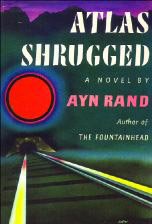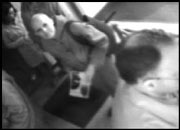POLITICAL FICTIONS
by Joan Didion (Alfred A. Knopf, $25) Benaroya Hall, Third and Union, 621-2230, $15 7:30 p.m. Tues., Sept. 25
JOAN DIDION has been at the forefront of cultural discourse in America since the 1960s, when she began writing what have come to be regarded as modern nonfiction masterpieces. In 1988, her focus shifted to the subject of American politics. Eight of her essays have been collected into a new book, Political Fictions. In preparation for her still-scheduled appearance in Seattle, she spoke with us from her home in New York City.
Seattle Weekly: The pitch of America has suddenly changed. Are we entering a new era?
Joan Didion: I think we necessarily are entering a new era. I’m not sure that a lot of people have assimilated that yet. You know, everything changed on Tuesday; a lot of stuff that we were talking about before suddenly seems beside the point.
What have you thought about the president’s rhetoric in the last week?
It doesn’t seem to have been on key. It’s a lot of bluster. I don’t know exactly what he’s talking about. He said at some point that this was going to require sacrifice on the part of the American people. Then he was asked by a reporter what sacrifices he thought would be required, and he said, “It’s my sincere hope that no sacrifices will be required of the American people.”
What are the issues that haven’t surfaced yet?
Nobody has wanted to dwell on the fact that we basically invented Osama bin Laden. He was one of the mujahidin we were funding in the 1980s to fight the soviets in Afghanistan. So we could see a kind of poetry in this, or a kind of symmetry in it, at any rate, in that we created our own monster.
Do you think there’s another way we could approach the problem other than all this talk about war?
I get [that] we’re at war—but who are we at war with? When you talk about “taking him out” or “taking them out,” we’re talking about something that is spread through everything. It’s not in one country. Even if you could go in and somehow extract and “bring to justice” bin Laden, you haven’t really solved the problem. You still have the world he represents. One of the really sobering things about this is the number of people who’ve turned up walking around different cities in the United States carrying pilot uniforms and box cutters.
Do you remember a time when America was more terrified?
I remember being terrified as a child after the atomic bomb was dropped. From the time the atomic bomb was dropped until I was maybe 22 years old, I thought I would go to sleep one night and not wake up in the morning because we would be bombed. We had to get under our desks as children—that was another dumb thing. We’d have these drills where everybody would get under their desks and cover their brain stem by putting one hand on the back of their neck. You know, cover your eyes with one hand and put the other over your brain stem—as if this was going to help you. You didn’t have to be 10 years old to figure that one out.
Do you think that’s going to be the experience of young people now, going to sleep wondering if there’s going to be a bomb?
Or if a plane will fly into their house? I don’t know. There was something in the paper or on television about how to talk to young children about the disaster, and I said to my husband that I didn’t think young children had any trouble dealing with disaster because young children don’t have any fixed ideas about the world anyway; it’s adults who do. Children are just learning what the world is, and if it includes planes flying into buildings, this is just another fact they learn.
You’ve worked in the film industry. Do you think this real-life violence is going to have an effect on our idea of entertainment?
I hope that digitized action movies will immediately seem very dated. We have actually seen the real thing happen, and it was more vivid than anything digital. There was a sense watching the explosions—which we’ve all seen now thousands of times—there’s a sense in which they do look like Armageddon or Con Air. But knowing what’s real makes the other seem very irrelevant.
You head out on tour this week to promote your new book, Political Fictions. Are you apprehensive about flying?
I would always just as soon not, but particularly this week I would just as soon not. Except that if you don’t do things, you kind of feel defeated. I guess we’re all trying to get back to what we’d call normal life.







